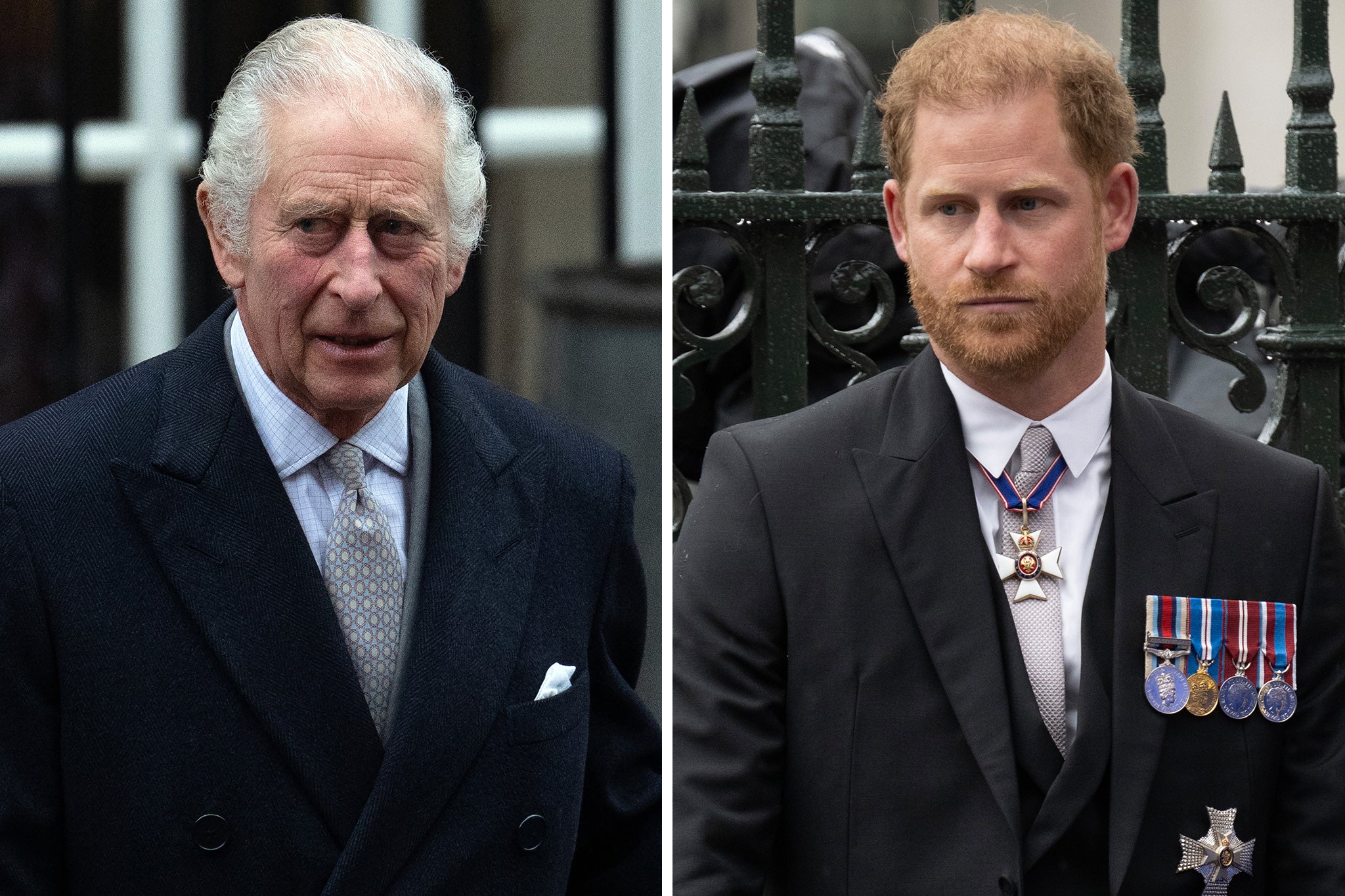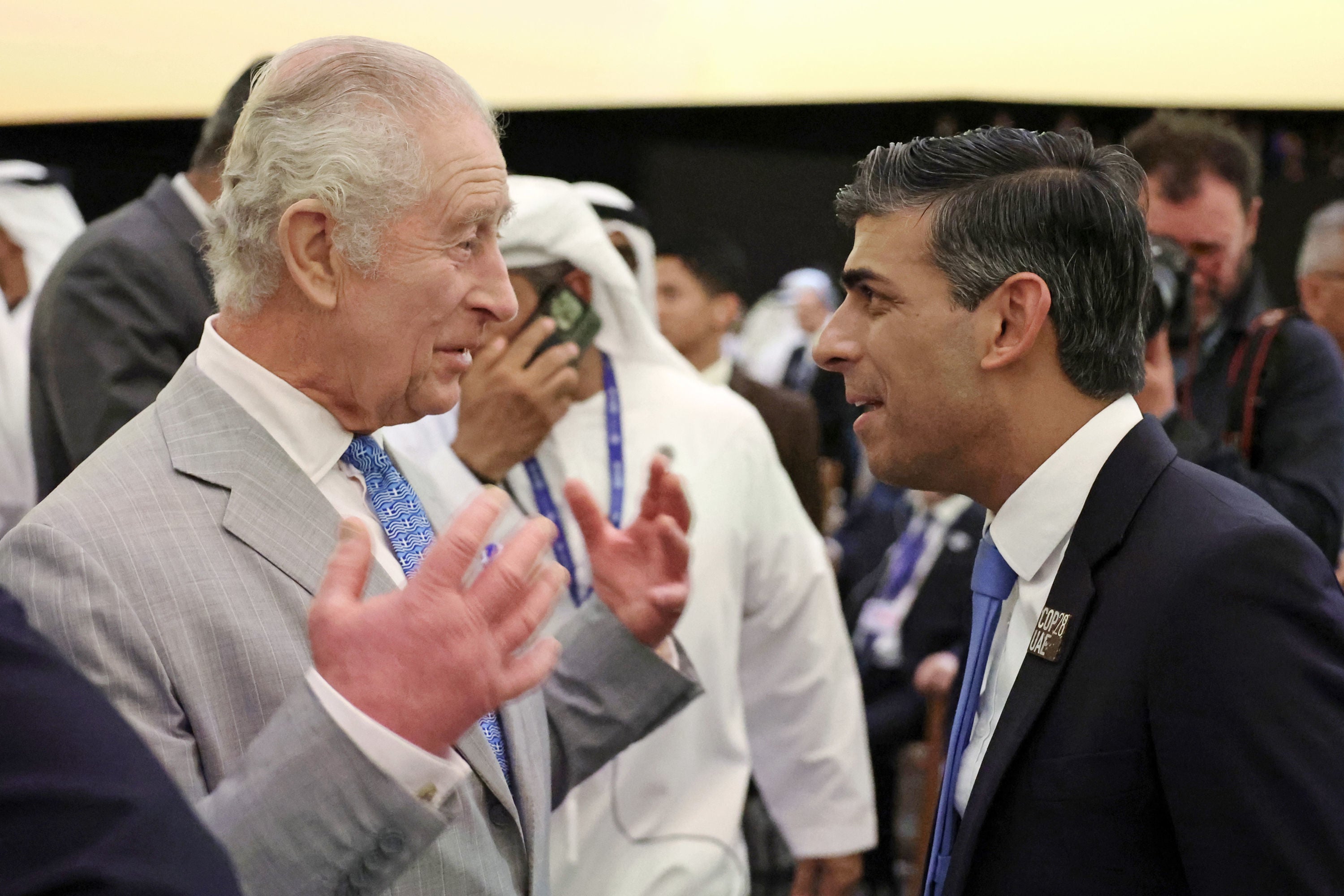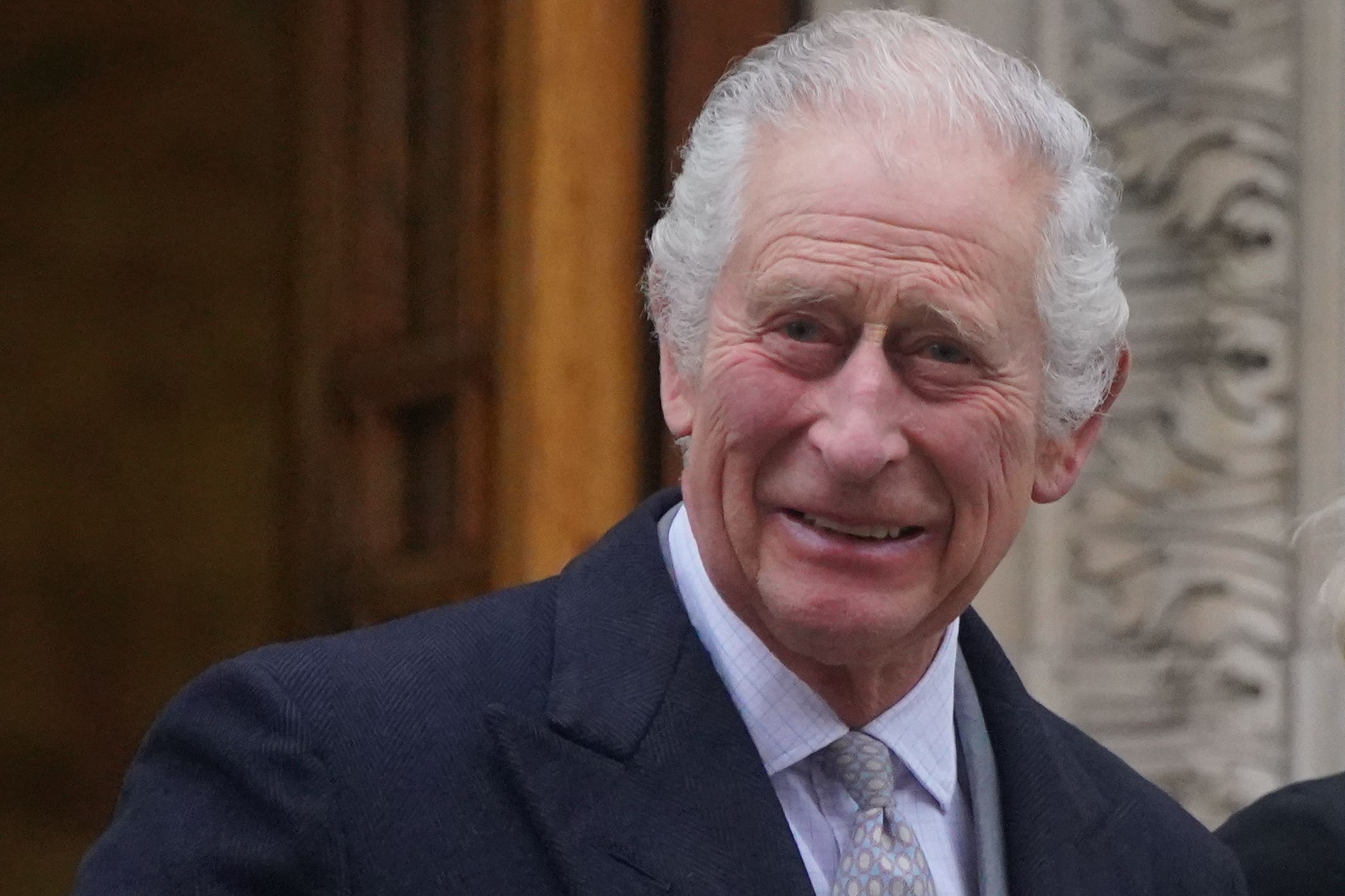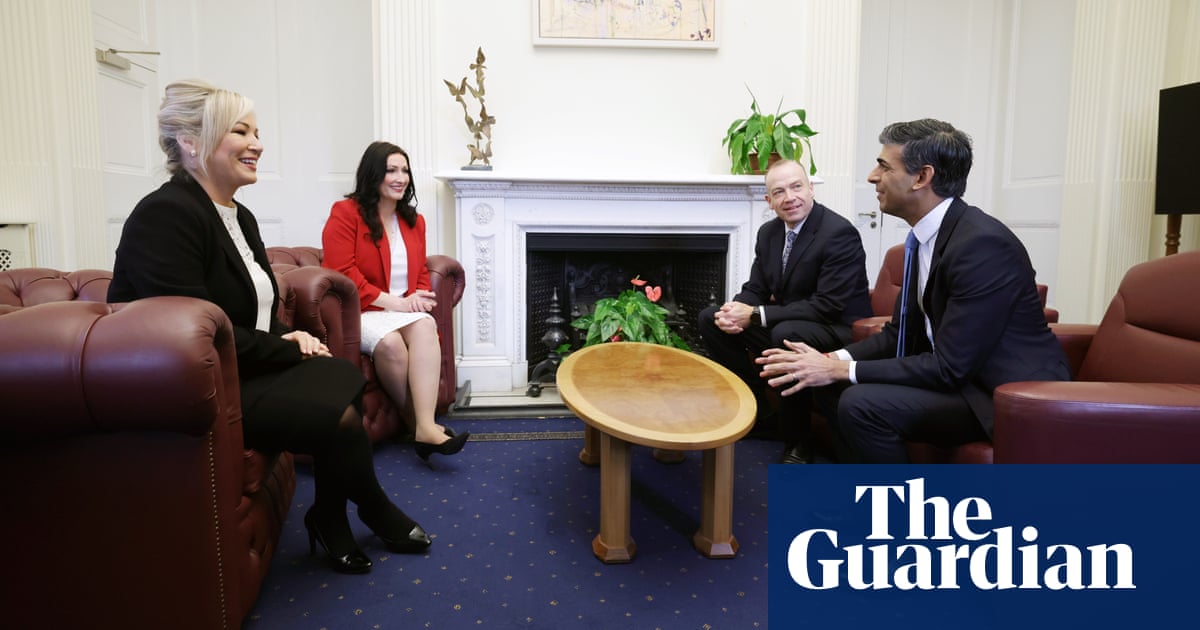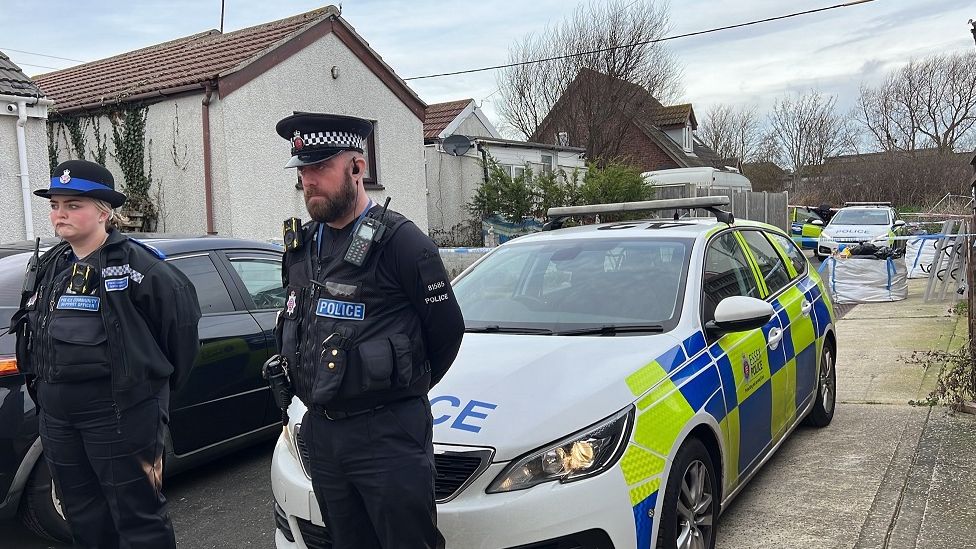The British and Irish governments have played down Sinn Féin’s calls for Irish unity and said Northern Ireland’s new devolved government can restore stability and faith in the region.
Rishi Sunak said Northern Ireland’s place in the UK was protected and urged the Stormont executive – led by Michelle O’Neill, the first nationalist first minister – to focus on bread-and-butter issues, not redrawing the border.
“It is not constitutional change, it is delivering on the day-to-day things that matter to people,” he said on Monday after meeting executive ministers, party leaders and Ireland’s taoiseach, Leo Varadkar, at Stormont.
The prime minister said the resumption of power-sharing after a two-year hiatus made it a historic day. “Northern Ireland’s politicians are back in charge, making decisions on behalf of their people, which is exactly how it should be,” he said. “Today isn’t the end. It’s the beginning, and the real work starts now.”
Varadkar echoed the sentiment and declined to be drawn on whether he expected a united Ireland in his lifetime, which he has said before. “That is not a question to answer today,” he told a press conference. “The priority for any new executive in any government in any country has to be the day-to-day concerns for people.”
A Downing Street spokesperson said both leaders agreed that a stable, effective and successful Northern Ireland immensely benefited British-Irish relations and they looked forward to “remaining in close contact”.
Nevertheless, tensions between both sides remained apparent. Sunak reiterated “regret” that Dublin had taken legal action against the UK policy on Troubles-related crimes. Varadkar said the UK government deal that coaxed the DUP back to Stormont with tweaks to post-Brexit trading arrangements had “negative language” about an all-Ireland economy.
There was no joint press conference, raising eyebrows on both sides of the Irish Sea.
Peter Hain, who was Northern Ireland secretary from 2005 to 2007, said he was “astonished” the two leaders did not appear together, adding that it was crucial for the heads of government to be seen to have a close working relationship.
Lord Hain told the Guardian: “Ever since 2010, since the Tories came to power, though it was better under David Cameron, they have seen their role is to boost London, against Brussels and if necessary against Dublin. Sunak seems to have caught a bit of the disease as well.
“You can’t actually make Northern Ireland’s Good Friday architecture work unless Dublin and London are joined at the hip as they were for 10 years under Tony Blair,” said Hain, who was Northern Ireland secretary under a Labour government when the St Andrews agreement was drawn up, which built on the Good Friday agreement.
Former Taoiseach Bertie Ahern told the BBC he too would have liked to have seen a joint press conference, adding that it was important for the two governments to work together.
Sunak’s seventh visit to Belfast as prime minister let him showcase a political win and offered respite from bruising battles at Westminster. It capped a whirlwind week in Northern Ireland in which the DUP ended a boycott of power-sharing, paving the belated formation of an executive based on a May 2022 assembly election in which Sinn Féin emerged as the biggest party – a milestone for Irish nationalism.
After meeting Sunak, Sinn Féin’s leader alluded to the party’s push for a referendum on a united Ireland within 10 years. Mary Lou McDonald said: “Change is all around and must be managed.” Last week, she said Irish unity was within “touching distance”.
Under the Good Friday agreement, the secretary of state should call a referendum if a majority in Northern Ireland appears to favour unification. Chris Heaton-Harris said the conditions were “definitely not met”.
The four parties that comprise the executive – Sinn Féin, the DUP, Alliance and the Ulster Unionists – presented a united front in lobbying for funding from London in addition to a £3.3bn package that is already on the table.
The executive spoke with “one voice” on funding, said Emma Little-Pengelly, the DUP’s deputy first minister. “We need to work together – the executive and the government – to deliver long-term fiscal stability,” she said.
The Sinn Féin ministers Conor Murphy and Caoimhe Archibald respectively occupy the economy and finance portfolios, putting them centre-stage in negotiations with the Treasury, which wants Northern Ireland to change its spending habits and raise more revenue.
Heaton-Harris said the £3.3bn package was “ample for the time being” and that politics was about making choices. He said: “I believe the new set of ministers are completely capable of running their public finances perfectly well with the fair and generous funding package we’ve given them.”
Adblock test (Why?)
https://news.google.com/rss/articles/CBMibmh0dHBzOi8vd3d3LnRoZWd1YXJkaWFuLmNvbS91ay1uZXdzLzIwMjQvZmViLzA1L2JyaXRpc2gtYW5kLWlyaXNoLXBsYXktZG93bi1zaW5uLWZlaW4tY2FsbHMtZm9yLXVuaXRlZC1pcmVsYW5k0gEA?oc=5
2024-02-05 14:47:00Z
CBMibmh0dHBzOi8vd3d3LnRoZWd1YXJkaWFuLmNvbS91ay1uZXdzLzIwMjQvZmViLzA1L2JyaXRpc2gtYW5kLWlyaXNoLXBsYXktZG93bi1zaW5uLWZlaW4tY2FsbHMtZm9yLXVuaXRlZC1pcmVsYW5k0gEA


